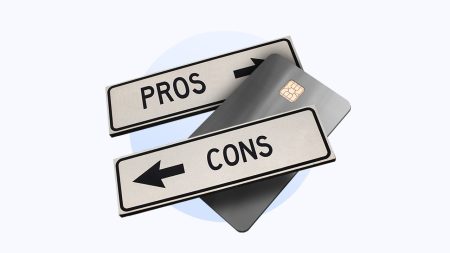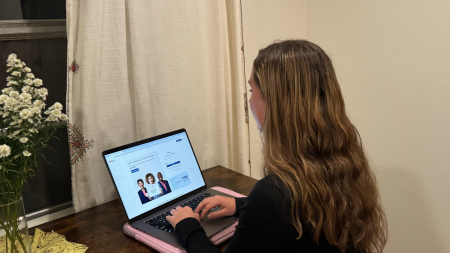Key takeaways
- Money market accounts, or MMAs, are safe because they are deposit accounts, not investment accounts.
- MMAs are usually protected by the maximum insurance limit through FDIC or NCUA.
- MMAs are best described as a hybrid between a savings and checking account, offering interest earnings along with cash accessibility features.
If you’re looking for a safe place to park your cash besides a traditional checking or savings account, a money market account is a good alternative.
Money market accounts can be found at many banks and credit unions. They give savers some advantages.
“A money market savings account – often referred to as an MMA – is an account that offers the potential for higher earnings than a standard savings account, and commonly has tiered rates that may change weekly based on the money market environment,” says Jaspreet Chawla, senior vice president of savings products at Navy Federal Credit Union.
“[These] are an easy way to earn more than a basic savings account while still having all the same benefits you might be accustomed to enjoying, including easy access to your money and the ability to write checks and withdraw money from an ATM,” says Chawla.
Are money market accounts safe?
Money market accounts are safe if they are with federally insured banks or credit unions.
Just make sure your financial institution is a member of the Federal Deposit Insurance Corp. (FDIC) or the National Credit Union Administration (NCUA). These institutions insure deposit accounts up to $250,000 per depositor, per insured bank, per account category.
That means if your bank fails, your deposits are protected, up to the limit.
Risks of an MMA
Risk isn’t really the right terminology when discussing money market accounts since they are deposit accounts and not investment accounts. However, there are a few characteristics of money market accounts that may be seen as downsides and should be considered before opening:
- Monthly fees: Some money market accounts charge a flat fee — usually around $5 — for monthly service and maintenance. Depositors with larger balances may not notice, but these fees can seriously eat into the earning potential of smaller accounts. It’s better to choose MMAs that have no monthly fees or offer attainable criteria for waiving them.
- Transaction limits: Many money market accounts often cap the number of withdrawals and transfers you can make per statement cycle before charging a fee. It’s better to utilize your checking account to manage money that needs to be more frequently accessible.
- Other fees: Additional fees to watch out for with money market accounts are overdraft fees, inactivity fees, excessive transaction fees and ATM fees. However, most banks make these fees easily avoidable to make their money market accounts more attractive to depositors.
- Minimum deposit requirements: To open a money market account, many banks, especially larger brick-and-mortar banks, require a minimum deposit. This can range from hundreds to tens of thousands of dollars. There are plenty of MMAs that do not have minimum deposit requirements, but these are primarily available at online-only banks.
- Variable interest rates: Banks and financial institutions have the right to change the interest rate of your money market account at any time. If you’d prefer a fixed interest rate, you may want to consider a certificate of deposit (CD).
- Tiered interest rates: While some money market accounts offer the same interest rate for all balance sizes, others have tiered interest rates that increase with your account balance.
- Insurance: Money market account risk is zero as long as you confirm your bank or financial institution has insurance through FDIC or NCUA.
What makes a money market account unique?
Money market accounts straddle the line between savings and checking accounts. They are good for growing your money because they pay interest. At the same time, they sometimes come with the ability to write checks and a debit card for easy access to cash.
Money market accounts are generally limited to six withdrawals or transfers per statement cycle. If you exceed the limit, you will likely pay a fee for each over-the-limit transaction (ATM withdrawals are not part of the limit). Your bank may also convert your MMA into a checking account that does not pay interest.
“While your funds may be easily accessible for withdrawal, you won’t have the same merchant payment options as you do with a traditional checking account,” says Chawla, noting that you can’t use the debit card for point-of-sale transactions and might not be able to use your money market account for electronic bill payment.
Money market account vs. money market fund
As you compare MMA options, be aware that there is another financial product with a similar name that is fundamentally different from a money market account. It’s called a “money market fund,” also known as a “money market mutual fund.”
Money market funds are available at banks, brokerage firms and investment fund companies. They are a type of mutual fund that is invested in short-term securities, such as U.S. Treasury bills. And while they are considered a low-risk investment, they are not federally insured.
How much money should you keep in a money market account?
How much cash to keep in your MMA depends on your financial situation and the policies of your bank.
Navy Federal Credit Union’s Chawla points out that many financial institutions require account holders to meet certain balance thresholds before they can earn interest or qualify for higher interest rates. At Navy Federal, for example, you must deposit at least $2,500 into your MMA to start earning interest and at least $50,000 to earn the top rate.
If you’re having trouble meeting minimum balance requirements, it could be beneficial to explore money market accounts from online-only banks, such as Ally Bank and Synchrony Bank. Not only do online banks have low to no minimum balance requirements, they typically offer some of the best money market account rates available. Without the burden of maintaining large branch networks, online banks can afford to pass more benefits onto depositors by waiving monthly fees, offering higher yields, and reducing minimum balance requirements.
Also, it’s important to remember that a money market account is just one of many tools you can leverage to manage your finances. You could put a portion of your cash in a money market account and seek higher returns by investing another portion in dividend-paying stocks, bonds or other assets.
First, though, make sure you have enough cash set aside to cover three to six months of your living expenses. It’s best to keep an emergency fund in a safe, protected account — like an MMA — rather than invest it in riskier vehicles. Once you meet that threshold, you can consider other, higher-growth opportunities.
Best money market accounts
A money market account can be an ideal place to earn a competitive yield on your savings
Learn more
Bottom line
A money market account is a very safe banking product to help accelerate your savings. If you have a lot of cash on hand and still want some access to it, these accounts are a good place to watch it grow.
–Freelance writer Drew Waterstreet contributed to updating this article.
Read the full article here












